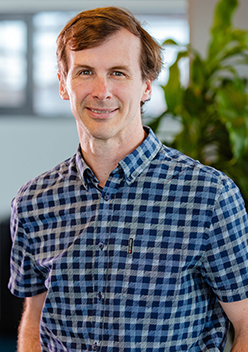
I have been a GP for 16 years. I have always tried to work in areas where my medical skills would be of most value. Back in 2004, Prof Noel Hayman, one of Queensland’s first Aboriginal medical graduates, offered me a job in his service, and accepting his offer was the best thing I did. It has been an amazing career ride. The Inala Indigenous Health Service in south-western Brisbane has grown from a couple of rooms and a few hundred patients back then to a standalone service in its own building(s) with 3500 regular patients. The service has a wonderful set of clinicians (doctors and nurses), researchers and community team members. It is a privilege serving the Aboriginal and Torres Strait Islander population, hearing rich stories, attending to challenges together, and enjoying the humour that inevitably comes from working in such a service.
Our research team applied for this college grant because we were concerned kidney disease was a silent killer in our service and poorly understood. The research was pretty straightforward. Using an audit of clinical practice software data (Best Practice), we wanted to see how many people have kidney disease and at what level. We also interviewed people living with chronic kidney disease to see how they were coping and wanted to learn what we could do to better meet their needs. We are currently analysing the data, and if you want to know the outcomes - come to Perth for GP20 (assuming the organisers give me a spot to talk).
The college grants are a great opportunity for GPs doing research. Unfortunately for health research in general, there are relatively few GPs engaged in research, but that does mean that grants like these where you have to be a GP to apply are more accessible than the difficulties of an NHMRC grant (for example). The funding from the foundation allowed us to conduct and transcribe the interview part of our research program on kidney disease in a health service dedicated to Aboriginal and Torres Strait Islander people. GPs bring an important perspective to health problems, and we, as a profession, need to get on board with research. The more GPs take advantage of these types of opportunities on offer through the college, the better.
Dr Geoff Spurling